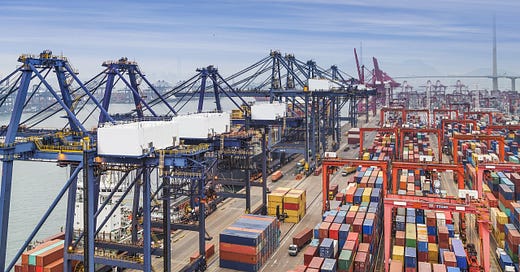Global Trade Barriers Surge, Echoing 1930s-Era Protectionism
Global Trade Flows Are Being Reshaped. Subscribe for full access.
President Donald Trump’s sweeping new tariffs have triggered retaliation from Europe, China, and Canada, targeting hundreds of U.S. products. But the shift began before his return, as countries moved to shield domestic industries—especially from Chinese imports like electric vehicles and steel.
Trump’s latest tariffs are reshaping global trade flows, prompting more countries to act. The European Union plans new protections for its steel and aluminum industries in response to Trump’s 25% tariffs on those metals.
Economists warn this could mark the most serious protectionist wave since the Smoot-Hawley Tariff Act of 1930. While today’s tariffs remain far below Depression-era levels, experts cite risks of slower growth, higher inflation, and fractured global cooperation. The WTO, once key to resolving disputes, has largely been sidelined.
Trump argues free trade has hurt American jobs and plans further tariffs on semiconductors, pharmaceuticals, and cars. A new policy launching April 2 would impose “reciprocal” tariffs based on other countries’ trade barriers.
Other nations are also clamping down on Chinese goods. South Korea and Vietnam have penalized Chinese steel, Mexico is probing chemical and plastic imports, and Indonesia plans new duties on nylon. Even Russia has raised taxes on imported vehicles—mostly Chinese—as Chinese cars now make up over half of new auto sales there, up from under 10% before 2022.
“We may be on the verge of a much broader trade war,” Cornell economist Eswar Prasad told The Wall Street Journal. “It’s every country for itself.”
As of March 1, the G20 had 4,650 import restrictions in place—including tariffs, quotas, and antidumping duties—up 75% since Trump first took office in 2016, according to Global Trade Alert. That’s nearly 10 times the number in force at the end of 2008.
Keep reading with a 7-day free trial
Subscribe to The Rising Tide to keep reading this post and get 7 days of free access to the full post archives.




